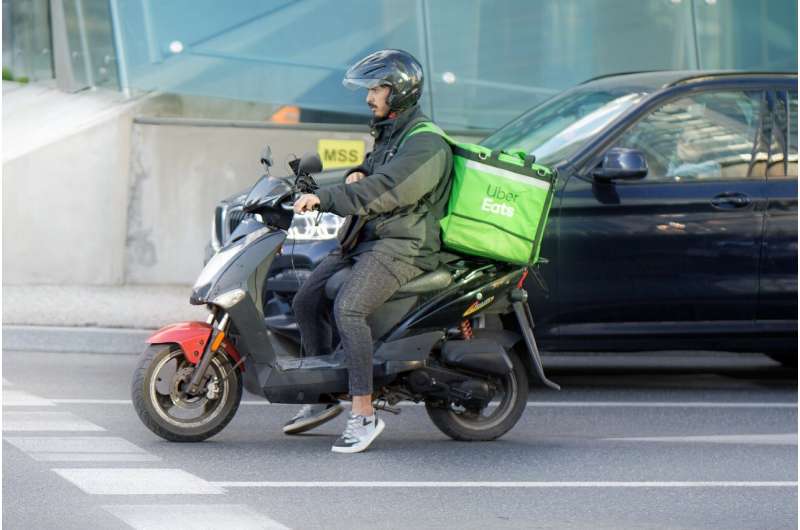Using Food Delivery Networks to Accelerate Cardiac Arrest Response and Save Lives

Innovative use of food delivery services in Taipei shows promise for quick defibrillation in cardiac emergencies, potentially saving more lives through faster response times.
In a groundbreaking approach to improve survival rates during out-of-hospital cardiac arrests (OHCA), researchers have explored the potential of utilizing existing urban food delivery services to provide faster access to defibrillation. The study, conducted in Taipei City, Taiwan, was motivated by the critical need to reduce delays in administering life-saving defibrillation, which is essential for increasing the chances of survival during cardiac emergencies.
The research involved a simulation based on real-world data from the Taipei City Fire Department, public defibrillator (AED) locations, and food delivery patterns, particularly focusing on Uber Eats riders. The hypothesis was that leveraging the widespread network of food delivery riders—often available within close proximity to hotspots—could significantly cut down response times compared to traditional emergency medical services (EMS).
Findings published in the Canadian Journal of Cardiology revealed that deploying food delivery riders to deliver AEDs could reduce response times by approximately three minutes, roughly halving the EMS response time in high-density urban areas. This time savings is crucial, considering that each minute of delay in defibrillation decreases survival probabilities by 7–10%. The simulation showed that even at modest response rates, over 60% of OHCA incidents could be attended to more swiftly, with potential for better patient outcomes.
Lead researcher Kuan-Chen Chin emphasized that this strategy offers a cost-effective, scalable solution to address the ‘weak link’ in the chain of survival, especially during peak hours when conventional EMS may face delays. The study demonstrated that, during peak times, increasing food delivery rider responsiveness could further improve the rapid deployment of AEDs, thereby potentially saving more lives.
In practical terms, the simulation assumed that every restaurant in a hotspot had at least one rider standing by within a two-kilometer radius who could respond to OHCAs. Response rates were varied, and the study found that even a response rate as low as 10% could significantly decrease AED arrival times. During peak hours, response coverage of 80% was feasible with just around 13% of food delivery riders engaged as first responders.
This innovative approach highlights how existing urban infrastructures—such as food delivery services—can be repurposed to strengthen community response to cardiac emergencies. By integrating these riders into the emergency response network, cities could dramatically improve the speed and effectiveness of life-saving interventions, ultimately increasing the chances of survival for cardiac arrest victims.
The research underscores a new frontier in community-based emergency response, suggesting that collaboration between healthcare systems and gig economy platforms can play a vital role in improving health outcomes in densely populated urban environments.
Source: https://medicalxpress.com/news/2025-08-leveraging-food-delivery-rapid-cardiac.html
Stay Updated with Mia's Feed
Get the latest health & wellness insights delivered straight to your inbox.
Related Articles
Prolactin's Role in Regulating Body Temperature During Pregnancy
New research reveals how prolactin, a key pregnancy hormone, helps regulate body temperature, ensuring maternal and fetal health during pregnancy. Discover the science behind this vital function.
Bridging Gaps in Memory Care for Rural and Indigenous Communities
Innovative research in northern Arizona is addressing overlooked signs of dementia in rural and Indigenous communities by providing early detection, education, and support to promote brain health and prevent progression.
Assessing Cannabis Potency: Are Labels Accurate?
A recent study from Colorado reveals that nearly half of cannabis flower products are mislabeled regarding THC content, emphasizing the need for improved testing and transparency for safer consumption.



